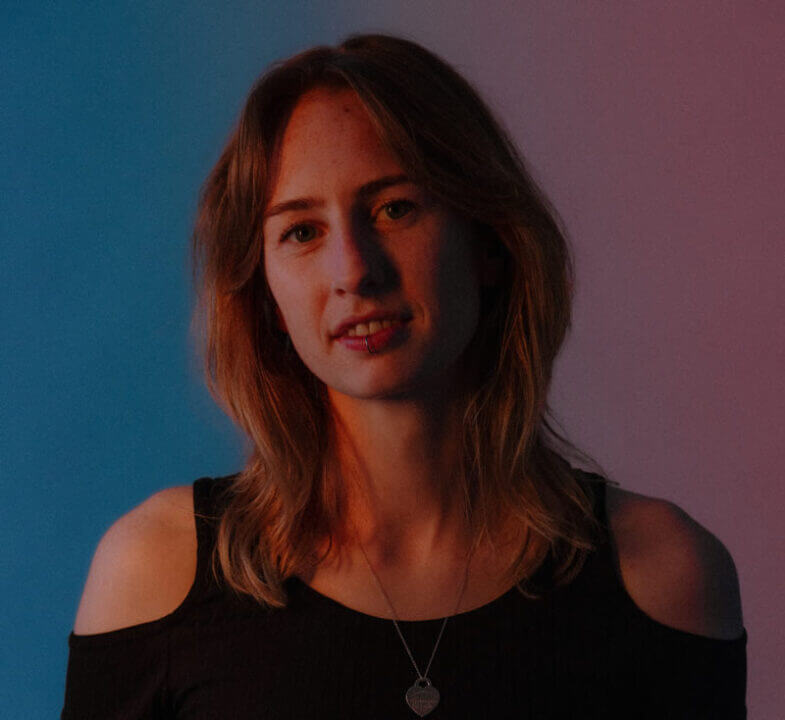VPA Blog Post: May 2023

GOOD NEWS: 2023 CCE AWARD NOMINEES
April 21, 2023
Featured Member: Victoria Mercedes
May 19, 2023We always want to be there as disruptors in the industry.
VPA Chair Don Thompson reflects on Vancouver’s journey to become a
post-production powerhouse, and lessons learned along the way
by Sabrina Rani Furminger
Don Thompson has been a champion of the Vancouver post-production scene since he launched Finale Post in 1988 – and after more than three decades in the business, he’s as enthusiastic as ever about post-production and its opportunities for growth.
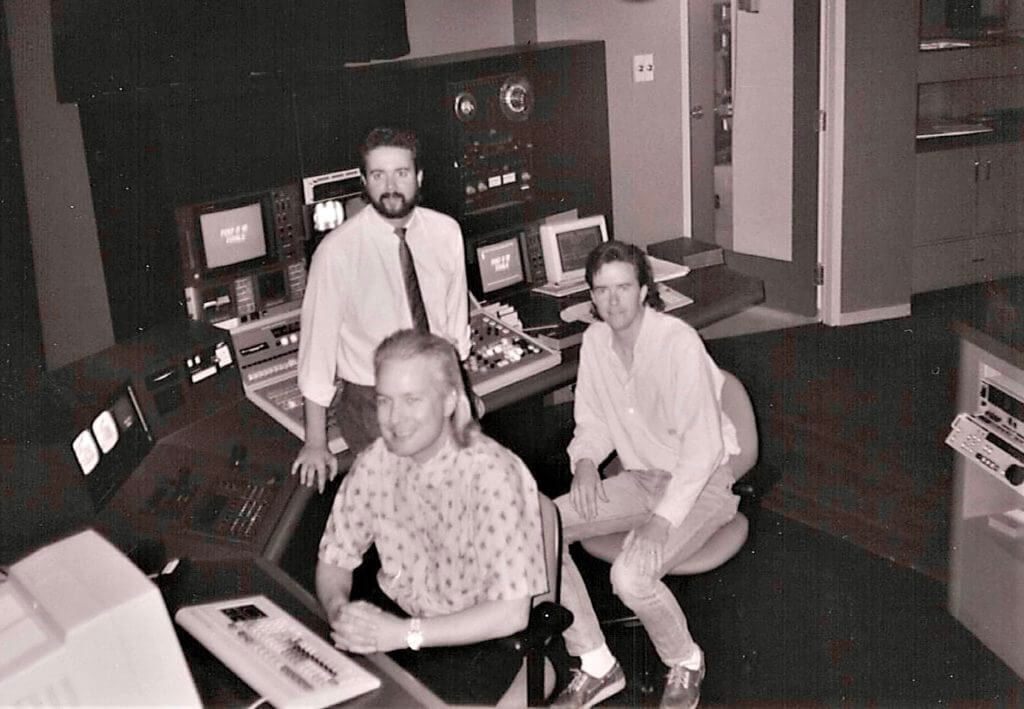
John Christie, and Allan Pinvidic (1999)
Back in 1988, the Vancouver film and television industry was “still in its infancy” and the post-production landscape “was reasonably well-developed based on the amount of work that was in town,” recalls Thompson in a recent interview. Besides the few American features that would come up to Vancouver to shoot each year, the remainder of the productions were home-grown. “The only people who were really creating a lot of television at that point were the television stations themselves,” says Thompson.
And then an American showrunner named Stephen J. Cannell arrived on the Vancouver scene with 21 Jump Street and Wiseguy and changed the landscape forever. The Cannell shows “were the kickstarter for what we know as an industry now,” says Thompson. “It brought a leaner way of producing television, which really suited a start-up market like what Vancouver was. It allowed a lot of new creators at all levels to come into the industry, and part of that was around post-production.”
What a difference a Wiseguy – and a few decades – can make. Today, Vancouver’s post-production scene is robust and thriving. Thompson characterizes today’s landscape as “a much more mature market. There’s a mix of large multinational facilities like Company3, Picture Shop and Animal Logic, you have mid-size companies like Sharpe Sound Studios and Animism, and then you have smaller boutiques starting to pop up again that are built on specific talent and creative relationships,” says Thompson. “They’re all finding great success now.”
This great success didn’t happen overnight. The Vancouver post-production scene first had to prove that it could attract world-class talent, that it was easily accessible, and that it had good technology backbones for file transfers – and it had to not only maintain these high standards, but constantly build upon it.

“It was something that took a lot of convincing for the major studios in Los Angeles, and even the local production companies, that this was going to be something that was going to be of value to them to support, and that they should reconsider leaving post in Vancouver,” says Thompson.
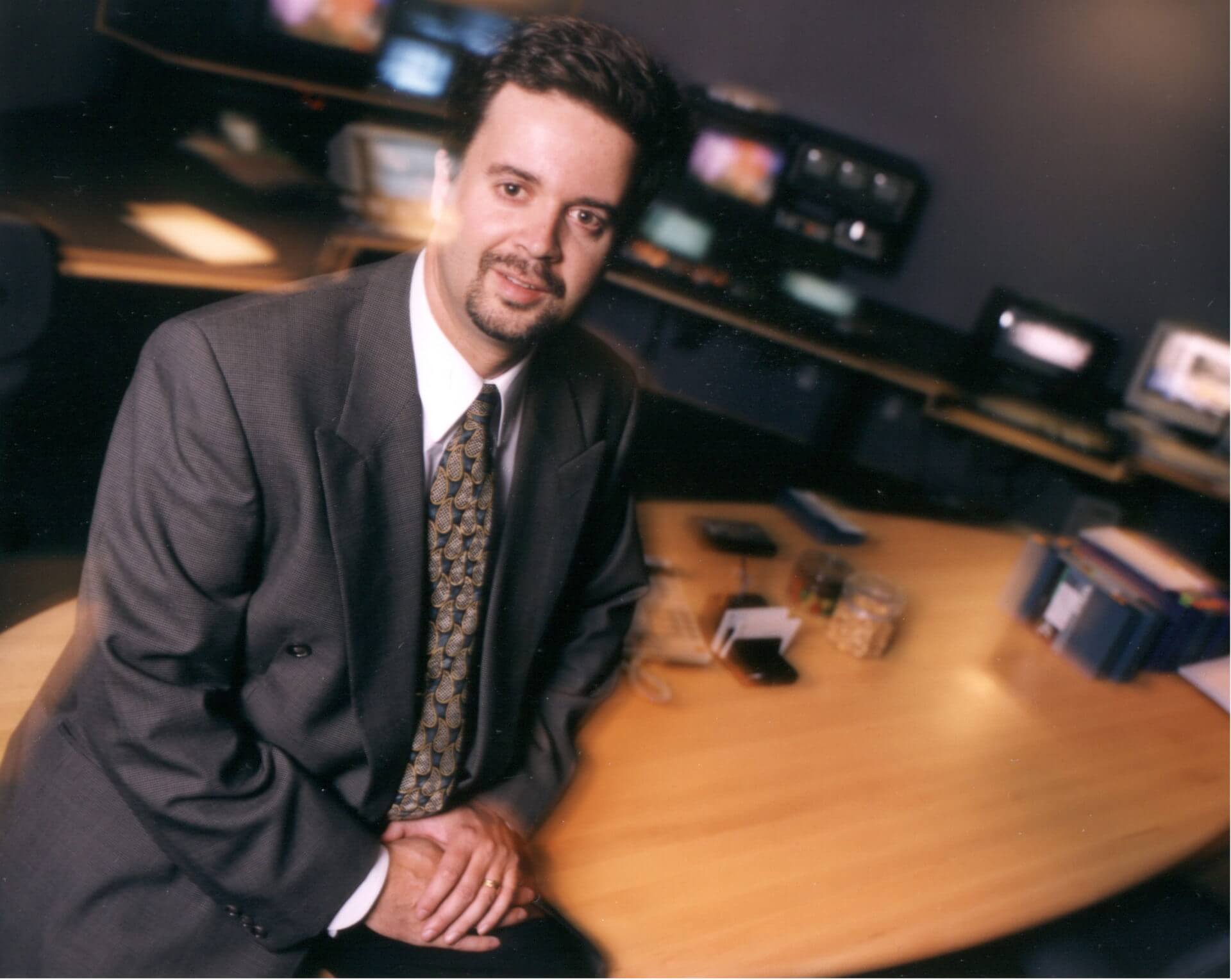
If you need proof that the local post-production scene has been successful, you need look no further than the years of steady growth. “It’s continued to grow, year over year, with the success of attracting new projects, not just ones shot in Vancouver, but ones shot around the globe and brought back here to post,” says Thompson.
One contributing factor to this growth is the way in which many of the key players in post-production stand together: they lobby, strategize, and grow as a community, as opposed to siloed individual entities. The unity of the community is evident in the 400-strong membership of the Vancouver Post Alliance.
Thompson was one of the co-founders of the Vancouver Post Alliance. The organization formed in 2013 after a group of post-production stakeholders banded together to lobby the provincial government to include post-production in the DAVE tax credit.
“There’s work for everybody, and I think we could easily double the number of workers and facilities catering to post in this town, and still have the need for new workers,” enthuses Thompson. “I think it’s a tremendous time for the industry. Streaming in particular has blown the doors off the amount of content that is being produced. I think there’s tonnes of growth we haven’t explored, and a lot of that is international work.”
Moving forward, Thompson would like to see the Vancouver post-production scene get a toehold in the world of virtual production. “There’s very little of that happening in Vancouver, let alone including local post-production talent, so that’s an area where there could be some significant growth,” he says.
He also sees a potential correlation between the doubling of stage space in Vancouver over the next five years and shoring up the post-production work-force. “I think there’s an opportunity for people who haven’t considered post before to make that jump and get into it, or bring skills from other parts of the industry over,” says Thompson.
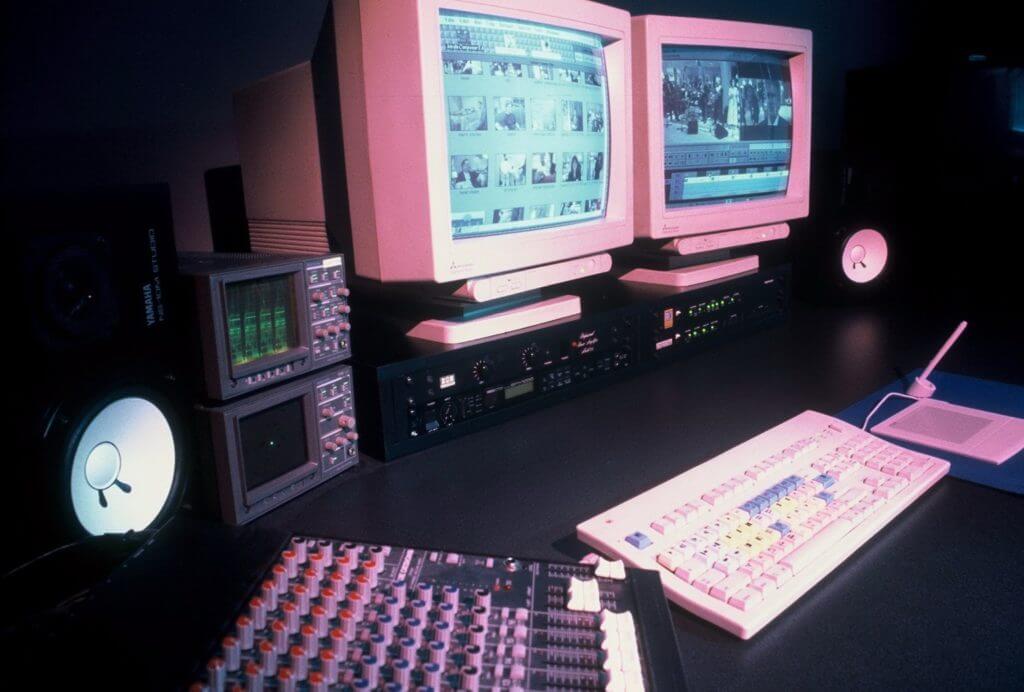
“We’ve seen some of that start in the last couple of years with DITs on-set now becoming colourists for doing post. Those are the kinds of things that are exciting to me.”
Thompson has worked in the film and television industry since he was 14 years old. He honed a broad spectrum of production skills before finding a special passion for editing. After graduating from the television production program at BCIT, he took whatever production work was available to him; but it was post-production that kept drawing him back in. “I loved working with the directors and the producers to craft a show, and also the technology side of it,” he says.
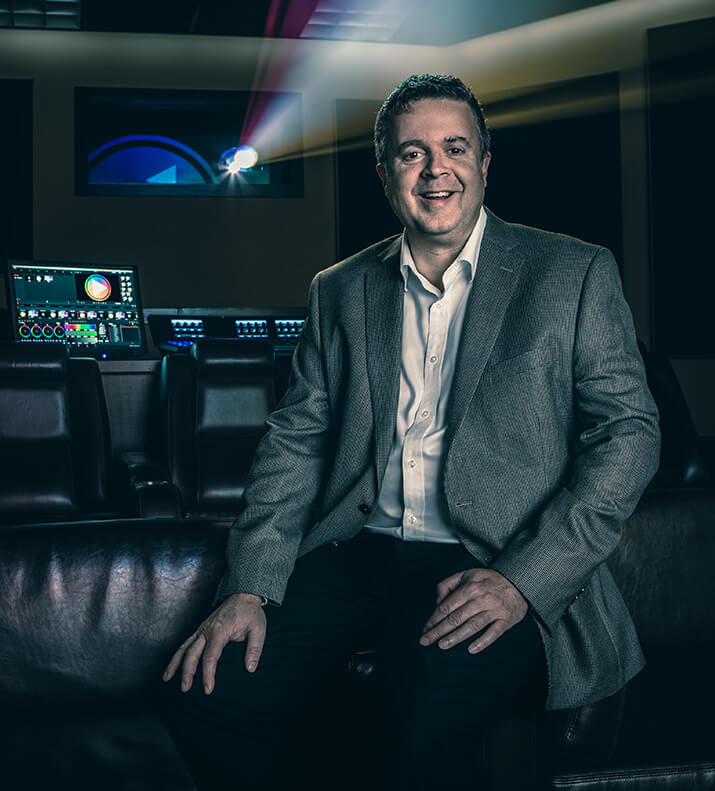
And those are the same qualities that Thompson advises people entering the post-production scene to nurture. “The industry really calls for a mix of technological skill as well as creativity,” he says. “And because of the longevity of most projects that you’re working on, you need to have patience and a willingness to work as part of a creative team to finish that project. You also need to develop a bit of a thick skin because not everybody will love your creativity. That was one of the things I found difficult at first as an editor. Every once in a while, you have to accept the fact that, ‘You know what? Maybe there is a better way!’”
Finale Post was acquired by Picture Shop in 2019 and Thompson left last year, but its founder is as passionate about the industry as ever, and remains one of post-production’s fiercest champions.
As chair of the Vancouver Post Alliance, he is keen to continue to build and evolve a sector that has weathered economic downturns and technological changes with aplomb and foresight.
“ [The Vancouver Post Alliance has] been doing this work for 10 years now, and our focus is on membership development, marketing our community outside of the community, and diversity and inclusion,” says Thompson. “We represent the interests of a cross-section of editors, colourists, music supervisors, artists, sound designers, composers, and post-supervisors, as well as all of the other crafts and technical areas in the industry. We have the support of most of the major facilities within BC and we’re continuing to grow it, and have lots of new ideas of where we need to go for the next ten years.”
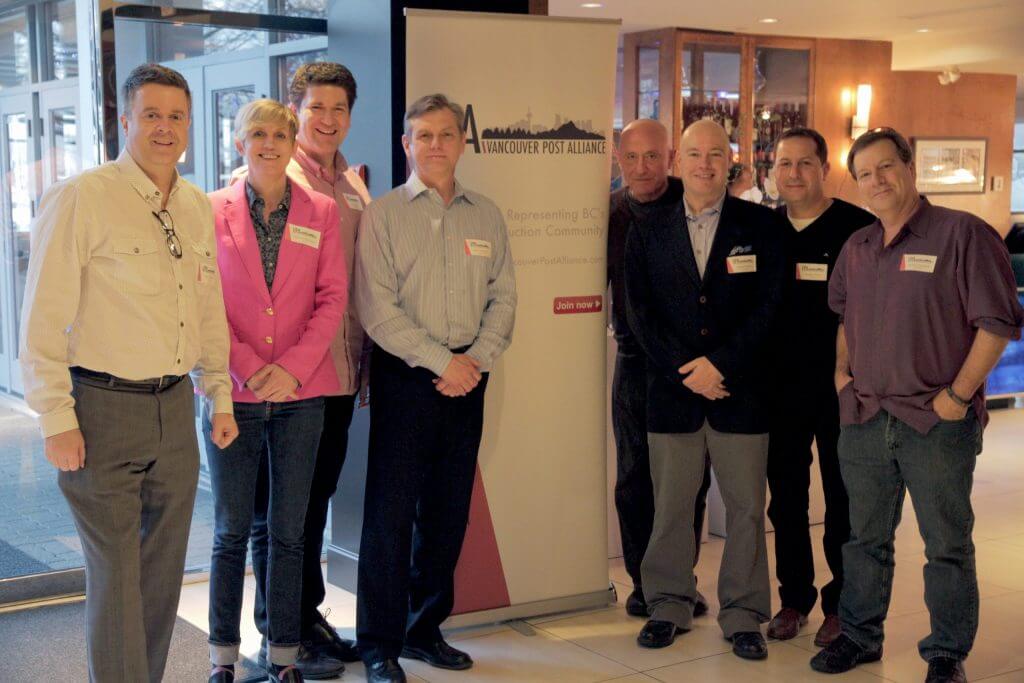
Jonathan Shore, Brad Goodman
(not pictured: Paul Sharpe, Scott Watson, James Ilecic, & Curtis Staples)
“Technology obviously is never standing still, and I think there’s going to be a lot of new opportunities and also upheaval as electronic file transfer and workflows for film and TV becomes more realistic in real-time,” adds Thompson. “I think we always want to be there as disruptors in the industry, not forgetting about old processes but embracing the new ones so that we’re first to the market with trained workers and workflows that are going to make sense to the studios and encourage them to continue to bring work here.”

Sabrina Rani Furminger is an award-winning film and television industry journalist,
host of the YVR Screen Scene Podcast, and co-owner of Fish Flight Entertainment.
https://www.yvrscreenscene.com/




